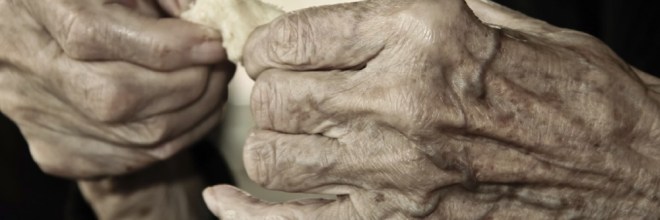
A new University of Iowa study further supports an inescapable message: caregivers possess a profound influence-good or bad-on the emotional state of people with Alzheimer’s disease. Patients may not remember a recent visit by a loved one or having been neglected by staff in a elderly care, but those actions may have a lasting effect on the way they feel.
The findings of this study are published in the September 2014 publication of the journal Cognitive and Behavioral Neurology, and could be viewed online with free streaming here.
UI researchers showed individuals with Alzheimer’s disease clips of sad and happy movies. The patients experienced sustained states of sadness and happiness despite the inability to recall the movies.
“This confirms that the emotional lifetime of an Alzheimer’s patient is alive and well,” says lead author Edmarie Guzmn-Vlez, a doctoral student in clinical psychology, a Dean’s Graduate Research Fellow, and a National Science Foundation Graduate Research Fellow.
Guzmn-Vlez conducted the study with Daniel Tranel, UI professor of neurology and psychology, and Justin Feinstein, assistant professor at the University of Tulsa and the Laureate Institute for Brain Research.
Tranel and Feinstein published a paper this year that predicted the importance of taking care of the emotional needs of individuals with Alzheimer’s, which is likely to affect as many as 16 million people in america by 2050 and cost an estimated $1.2 trillion.
“It’s vitally important to determine data that support our previous prediction,” Tranel says. “Edmarie’s studies have immediate implications for how we treat patients and just how we teach caregivers.”
Despite the significant amount of research aimed at finding new treating Alzheimer’s, no drug has succeeded at either preventing or substantially influencing the disease’s progression. Against this foreboding backdrop, the outcomes of this study highlight the necessity to develop new caregiving techniques aimed at increasing the well-being and minimizing the suffering for that countless individuals suffering from Alzheimer’s.
For this behavioral study, Guzmn-Vlez and her colleagues invited 17 patients with Alzheimer’s disease and 17 healthy comparison participants to see Twenty minutes of sad and then happy movies. These movie clips triggered the expected emotion: sorrow and tears during the sad films and laughter throughout the happy ones.
About five minutes after watching the movies, the researchers gave participants a memory test to ascertain if they could recall what they had just seen. Not surprisingly, the patients with Alzheimer’s retained significantly less information about both sad and happy films than the healthy people. In fact, four patients were unable to recall any factual details about the flicks, and something patient didn’t even remember watching any movies.
Before and after seeing the flicks, participants answered questions to gauge their feelings. Patients with Alzheimer’s reported elevated amounts of either sadness or happiness for up to Half an hour after viewing the films even with little if any recollection from the movies.
Quite strikingly, the minus the patients remembered about the films, the more their sadness lasted. While sadness tended to serve you for a bit more time than happiness, both emotions far outlasted the memory from the films.
The fact that forgotten events could exert a serious affect on an individual’s emotional life highlights the need for caregivers to avoid causing negativity and to try to induce positive feelings.
“Our findings should empower caregivers by showing them that their actions toward patients really do matter,” says Guzmn-Vlez, who was a Summer Research Opportunities Program student in 2008. “Frequent visits and social interactions, exercise, music, dance, jokes, and serving patients their most favorite foods are all simple stuff that may have a lasting emotional impact on an individual’s quality of life and subjective well-being.”
The study was funded by the National Institute of Neurological Disorders and Stroke (grant number: P01 NS19632), a National Science Foundation Graduate Research Fellowship awarded to Guzmn-Vlez, Kiwanis International, the Fraternal Order of Eagles, an American Psychological Association of Graduate Students Basic Psychological Research Grant, and the William K. Warren Foundation.

































